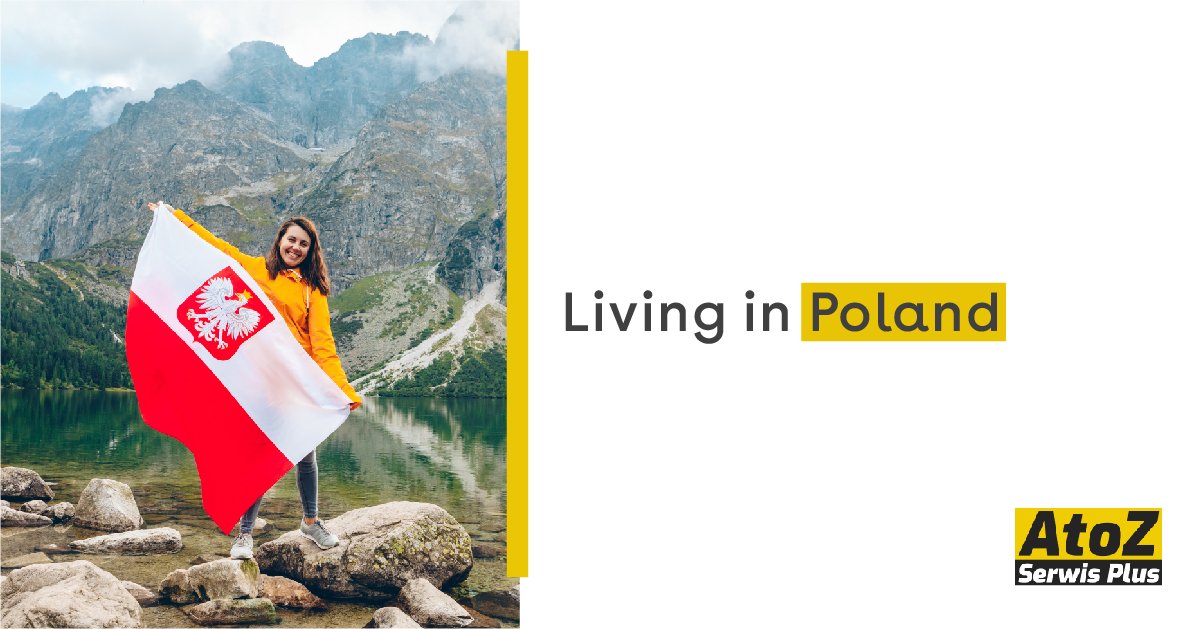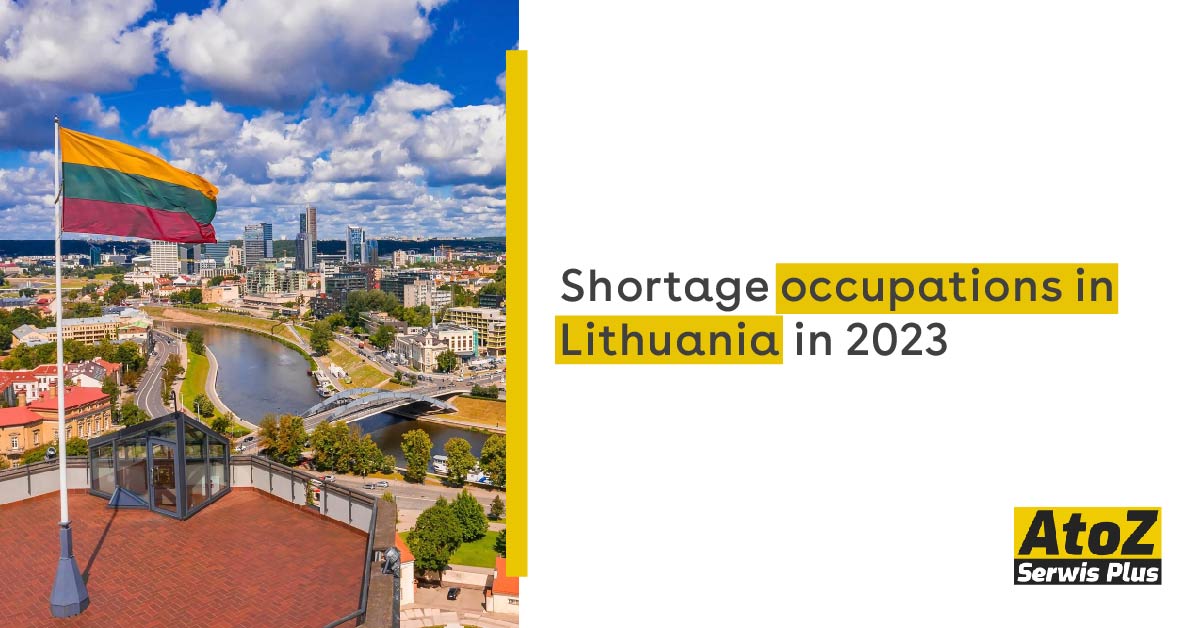

Top 10 jobs for foreigners in Romania
Are you a foreigner looking to start a new chapter in Romania? Finding work in a foreign country can be daunting, but Romania offers many opportunities for international job seekers. From bustling cities to picturesque landscapes, this Eastern European gem is not just a tourist destination—it's becoming a hotspot for global talent.
But where do you begin? The Romanian job market might seem like a maze, especially if you're unfamiliar with the local language and customs. Don't worry! We've got you covered with our guide to the Top 10 jobs for foreigners in Romania. Whether you're a tech whiz, a language expert, or a hospitality pro, there's likely a perfect role waiting for you.
From teaching English to diving into the booming IT sector, we'll explore the most accessible and in-demand jobs for expats. We'll also examine customer service, tourism, healthcare, and even entrepreneurship opportunities. So, please grab a cup of Romanian coffee and explore the exciting world of career possibilities in this vibrant country!
Understanding the Romanian job market
Current economic climate
Romania's economic landscape has rapidly evolved, offering various opportunities for foreign workers. The country has experienced steady GDP growth, with a focus on developing key sectors such as IT, manufacturing, and services.
|
Economic Indicator |
Value |
|---|---|
|
GDP Growth Rate |
4.8% |
|
Unemployment Rate |
5.2% |
|
Inflation Rate |
3.8% |
Popular industries for foreign workers
Foreign workers in Romania often find opportunities in several thriving sectors:
- IT and Technology
- Customer Service and Call Centers
- Education (particularly English teaching)
- Tourism and Hospitality
- Manufacturing
Work visa requirements
Obtaining a work visa in Romania involves several steps:
- Secure a job offer from a Romanian employer
- Employer applies for a work permit on your behalf
- Apply for a long-stay visa (D-type) at a Romanian embassy
- Register for a residence permit upon arrival in Romania
Language expectations
While Romanian is the official language, many jobs for foreigners don't require fluency:
- English is widely used in international companies and the IT sector
- German and French are valued in certain industries
- Basic Romanian knowledge is appreciated and can enhance job prospects
Now that we've covered the fundamentals of the Romanian job market, let's explore one of the most accessible opportunities for foreigners: teaching English.
Teaching English: High demand and accessibility
Qualifications needed
To teach English in Romania, you'll typically need:
- Bachelor's degree (any field)
- TEFL/TESOL certification (minimum 120 hours)
- Native or near-native English proficiency
- EU citizenship or work visa
Some positions may require:
- Teaching experience
- Romanian language skills (not always mandatory)
Types of teaching positions available
Romania offers various English teaching opportunities:
- Language schools
- Public schools
- International schools
- Universities
- Private tutoring
- Corporate language training
|
Position Type |
Pros |
Cons |
|---|---|---|
|
Language schools |
Flexible schedules, diverse students |
Variable hours, lower pay |
|
Public schools |
Stable income, long holidays |
Bureaucracy, large classes |
|
International schools |
Higher pay, professional environment |
Competitive, strict requirements |
|
Universities |
Prestige, academic setting |
Research expectations, lower pay |
|
Private tutoring |
Schedule control, higher hourly rate |
Inconsistent work, self-marketing |
|
Corporate training |
Well-paid, professional clients |
Travel required, business focus |
Average salary expectations
English teachers in Romania can expect:
- Language schools: 2,000-3,500 RON/month
- Public schools: 3,000-4,500 RON/month
- International schools: 4,500-7,000 RON/month
- Universities: 3,500-5,500 RON/month
- Private tutoring: 50-100 RON/hour
- Corporate training: 100-200 RON/hour
Salaries vary based on location, experience, and qualifications. Bucharest and other major cities typically offer higher pay. Many teachers supplement their income with private lessons or online teaching.
Now that we've explored the teaching English landscape in Romania, let's dive into another thriving sector for foreigners: the IT and tech industry.
IT and tech sector opportunities
In-demand programming languages
Romania's thriving IT sector offers numerous opportunities for foreign professionals. The most sought-after programming languages in the Romanian job market include:
- Java
- JavaScript
- Python
- C++
- .NET
These languages are highly valued due to their versatility and wide application across various industries. Proficiency in one or more of these languages can significantly boost your chances of securing a lucrative IT position in Romania.
|
Language |
Primary Use Cases |
Average Salary (RON/year) |
|---|---|---|
|
Java |
Enterprise, Android |
120,000 - 180,000 |
|
JavaScript |
Web development |
100,000 - 150,000 |
|
Python |
Data science, AI |
110,000 - 170,000 |
|
C++ |
Game development |
115,000 - 175,000 |
|
.NET |
Windows applications |
105,000 - 160,000 |
Multinational tech companies in Romania
Romania has become a hotspot for multinational tech companies, attracting global giants and creating a robust ecosystem for IT professionals. Some notable companies include:
- Oracle
- IBM
- Microsoft
- Amazon
- Ubisoft
These companies offer competitive salaries, excellent working conditions, and opportunities for career growth. Many have established research and development centers in major Romanian cities, fostering innovation and attracting top talent from around the world.
Startup scene for tech entrepreneurs
Romania's startup ecosystem has been growing rapidly, particularly in the tech sector. Cities like Bucharest, Cluj-Napoca, and Timișoara have emerged as vibrant hubs for tech startups. The country offers several advantages for tech entrepreneurs:
- Low cost of living and operations
- Access to skilled IT professionals
- Supportive government policies
- Growing venture capital scene
Many successful Romanian startups have gained international recognition, such as UiPath, a robotic process automation company. This thriving startup environment provides ample opportunities for foreign tech professionals to join innovative projects or even launch their own ventures.
Now that we've explored the IT and tech sector opportunities in Romania, let's move on to customer service and call center roles, which offer another avenue for foreigners seeking employment in the country.
Customer service and call center roles
Language-specific positions
Customer service and call center roles in Romania often cater to international clients, creating excellent opportunities for foreigners. Many positions require native or near-native speakers of various languages, including:
- English
- German
- French
- Italian
- Spanish
- Dutch
These language-specific roles allow foreigners to leverage their linguistic skills while working in Romania. Companies often offer competitive salaries and benefits for these positions due to the high demand for multilingual professionals.
Skills required
To excel in customer service and call center roles in Romania, candidates should possess a combination of technical and soft skills:
|
Technical Skills |
Soft Skills |
|---|---|
|
Computer proficiency |
Excellent communication |
|
Typing speed |
Patience and empathy |
|
CRM software knowledge |
Problem-solving abilities |
|
Data entry accuracy |
Cultural sensitivity |
|
Basic troubleshooting |
Time management |
Additionally, familiarity with industry-specific terminology and the ability to work in a fast-paced environment are highly valued.
Major companies hiring internationally
Several multinational corporations have established customer service and call center operations in Romania, actively recruiting international talent. Some of the prominent companies include:
- Oracle
- Amazon
- IBM
- Hewlett-Packard (HP)
- Accenture
- Vodafone
- Teleperformance
These companies offer diverse roles ranging from technical support to customer care representatives. Many provide comprehensive training programs and opportunities for career advancement within their global networks.
Next, we'll explore the vibrant tourism and hospitality sector in Romania, which offers another set of exciting job prospects for foreigners.
Tourism and hospitality jobs
Seasonal work opportunities
Romania's tourism industry thrives on seasonal fluctuations, offering numerous opportunities for foreigners. Summer months see a surge in coastal and mountain resort jobs, while winter brings ski resort openings.
|
Season |
Popular Locations |
Common Positions |
|---|---|---|
|
Summer |
Black Sea coast, Carpathian Mountains |
Lifeguards, activity coordinators, resort staff |
|
Winter |
Transylvania, Poiana Brașov |
Ski instructors, snowboard guides, chalet staff |
• Peak seasons: June-August (summer) and December-February (winter)
- Off-peak opportunities: Event planning and preparation roles
Hotel and restaurant positions
The hospitality sector in Romania is constantly growing, with a range of positions available for foreigners:
- Front desk receptionists
- Housekeeping staff
- Restaurant servers and bartenders
- Kitchen staff (chefs, sous chefs, line cooks)
Many high-end hotels and restaurants prefer international staff to cater to a diverse clientele.
Tour guide openings
With Romania's rich history and diverse attractions, tour guide roles are plentiful:
- City tour guides in popular destinations like Bucharest, Cluj-Napoca, and Sibiu
- Specialized guides for Transylvanian castles and medieval towns
- Adventure tour leaders for hiking, cycling, and wildlife experiences
Language advantages
Multilingual skills are highly valued in Romania's tourism sector:
- English is essential and often the primary requirement
- Other sought-after languages: German, French, Italian, Spanish, and Russian
- Native speakers have an edge in securing higher-paying positions
Proficiency in Romanian is beneficial but not always mandatory, especially in tourist-centric roles. However, learning basic Romanian can significantly enhance job prospects and daily life experiences.
Freelancing and remote work
Popular freelancing platforms
When it comes to freelancing and remote work in Romania, several platforms stand out as popular choices for both local and international professionals:
- Upwork
- Fiverr
- Freelancer.com
- TopTal
- PeoplePerHour
These platforms offer a wide range of opportunities across various industries, making them ideal for foreigners looking to work remotely in Romania.
|
Platform |
Specialties |
Commission |
|---|---|---|
|
Upwork |
All-round |
5-20% |
|
Fiverr |
Creative services |
20% |
|
Freelancer.com |
Technical projects |
10-20% |
|
TopTal |
High-end talent |
Varies |
|
PeoplePerHour |
UK/EU focus |
20% |
High-demand skills for remote workers
In the Romanian remote work market, certain skills are particularly sought after:
- Web development (JavaScript, React, Node.js)
- Mobile app development (iOS, Android)
- Data analysis and visualization
- Digital marketing and SEO
- Content writing and translation
- Graphic design and UI/UX
- Virtual assistance
Tax considerations for digital nomads
For foreigners working remotely in Romania, understanding the tax implications is crucial:
- Residency status: Determine if you're a tax resident based on the 183-day rule
- Double taxation agreements: Check if your home country has an agreement with Romania
- VAT registration: Required if annual income exceeds €65,000
- Social security contributions: May be required depending on your status
Now that we've explored the freelancing and remote work landscape in Romania, let's look at the opportunities available in corporate positions within multinational companies.
Corporate positions in multinational companies
Finance and accounting roles
Multinational companies in Romania offer numerous opportunities for finance and accounting professionals. These roles are particularly attractive for foreigners due to competitive salaries and the chance to work in an international environment.
- Entry-level positions:
- Junior accountant
- Financial analyst
- Accounts payable/receivable specialist
- Senior roles:
- Financial controller
- Senior accountant
- Finance manager
|
Skill |
Importance |
Demand |
|---|---|---|
|
Romanian language |
Medium |
High |
|
English proficiency |
High |
Very high |
|
ACCA/CIMA certification |
High |
High |
|
SAP/Oracle experience |
Medium |
Medium |
Human resources opportunities
HR positions in multinational companies are ideal for foreigners with strong interpersonal skills and cultural awareness. These roles often require a mix of local knowledge and international best practices.
- Popular HR positions:
- Recruitment specialist
- HR business partner
- Learning and development coordinator
- Compensation and benefits analyst
Marketing and sales positions
For those with a flair for communication and strategy, marketing and sales roles in multinational companies offer exciting prospects. These positions often allow for creativity and innovation within a structured corporate environment.
- Key marketing and sales roles:
- Digital marketing specialist
- Brand manager
- Key account manager
- Sales representative
Proficiency in English is crucial for most corporate positions in multinational companies in Romania. Additionally, knowledge of Romanian or other European languages can be a significant advantage. As we move forward, let's explore the growing opportunities in the healthcare sector, another promising field for foreigners seeking employment in Romania.
Healthcare sector jobs
Nursing opportunities
Romania's healthcare sector offers promising opportunities for foreign nurses. The country's growing demand for skilled healthcare professionals has created a favorable environment for international nurses seeking employment.
- Key advantages for foreign nurses in Romania:
- Competitive salaries compared to other Eastern European countries
- Opportunity to gain valuable experience in diverse medical settings
- Potential for career growth and specialization
Medical research positions
Romania has been investing heavily in medical research, attracting both local and international talent. Foreign researchers can find exciting opportunities in various fields of medical science.
|
Research Area |
Institutions |
Potential Roles |
|---|---|---|
|
Clinical trials |
Hospitals, Universities |
Research coordinator, Data analyst |
|
Biomedical engineering |
Research centers |
Biomedical engineer, Lab technician |
|
Pharmaceutical research |
Pharmaceutical companies |
Research scientist, Clinical researcher |
Pharmaceutical industry roles
The Romanian pharmaceutical industry has been growing steadily, offering numerous job opportunities for foreigners with relevant qualifications and experience.
- In-demand roles in the pharmaceutical sector:
- Quality assurance specialists
- Regulatory affairs managers
- Clinical trial managers
- Sales and marketing professionals
With Romania's healthcare sector expanding and modernizing, foreign professionals can find rewarding careers in nursing, medical research, and the pharmaceutical industry. These roles not only offer competitive compensation but also the chance to contribute to the country's evolving healthcare landscape.
Engineering and construction work
Types of engineering jobs available
Romania's engineering sector offers diverse opportunities for foreign professionals. Here's a list of in-demand engineering roles:
- Civil engineers
- Mechanical engineers
- Electrical engineers
- Software engineers
- Automotive engineers
- Environmental engineers
These positions are available across various industries, including manufacturing, infrastructure development, and technology.
Major infrastructure projects
Romania is currently undertaking several significant infrastructure projects, creating numerous job opportunities for engineers. Some notable projects include:
|
Project |
Description |
Location |
|---|---|---|
|
Bucharest Metro Line 6 |
New metro line connecting Bucharest to Henri Coandă International Airport |
Bucharest |
|
Brașov-Bacău Highway |
160 km highway connecting two major cities |
Central Romania |
|
Constanța Port Expansion |
Modernization and expansion of Romania's largest seaport |
Constanța |
These projects require a range of engineering expertise, from civil and structural to electrical and environmental engineering.
Qualifications and certifications needed
To work as an engineer in Romania, foreign professionals typically need:
- A bachelor's degree in engineering from an accredited institution
- Recognition of foreign qualifications by the Romanian Ministry of Education
- Proficiency in Romanian language (varies by employer)
- EU work permit or visa for non-EU citizens
Additionally, membership in professional organizations like the Romanian Association of Civil Engineers (AICR) can enhance job prospects and networking opportunities.
With Romania's growing economy and ongoing infrastructure development, engineering and construction work presents a promising career path for skilled foreign professionals.
Entrepreneurship and business opportunities
Starting a business in Romania
Starting a business in Romania offers exciting opportunities for foreigners. The process has become more streamlined in recent years, making it an attractive option for entrepreneurs. Here's a quick overview of the steps:
- Choose a business structure
- Register the company
- Obtain necessary licenses
- Open a bank account
- Register for taxes
|
Advantage |
Description |
|---|---|
|
EU Market Access |
Romania's EU membership provides access to a large market |
|
Low Business Costs |
Competitive operational and labor costs |
|
Skilled Workforce |
Well-educated and multilingual talent pool |
Sectors with growth potential
Romania's economy is diverse, with several sectors showing promising growth potential:
- IT and software development
- Renewable energy
- Agriculture and food processing
- Tourism and hospitality
- E-commerce and digital services
Government incentives for foreign investors
The Romanian government offers various incentives to attract foreign investment:
- Tax exemptions for reinvested profits
- State aid for new investments
- Grants for job creation
- Research and development incentives
Networking and support resources
Foreigners starting businesses in Romania can benefit from numerous networking and support resources:
- Chamber of Commerce and Industry of Romania
- Foreign Investors Council
- Business incubators and accelerators
- Expat business associations
These organizations provide valuable insights, connections, and assistance for navigating the Romanian business landscape. With the right preparation and support, entrepreneurship in Romania can be a rewarding venture for foreigners.
Conclusion: Romania offers a diverse range of job opportunities for foreigners, from teaching English to working in the thriving IT sector. The country's growing economy and increasing presence of multinational companies have created a favorable environment for expatriates seeking employment. Whether you're interested in customer service, tourism, healthcare, or engineering, there are options to suit various skill sets and experience levels.
For those looking to make their mark in Romania, consider exploring the top 10 job categories outlined in this post. Remember to research visa requirements, language expectations, and local work culture before embarking on your job search. With the right preparation and a willingness to adapt, you can find rewarding career opportunities in this vibrant Eastern European nation.
Top 10 Jobs for Foreigners in Romania
Romania is a growing hub for international workers due to its expanding economy and demand for skilled labor. Here are the top 10 jobs for foreigners in Romania:
- IT and Software Development – High demand for software engineers, developers, cybersecurity specialists, and IT consultants.
- Engineering – Civil, mechanical, and electrical engineers are in demand due to ongoing infrastructure projects.
- Healthcare and Medical Professions – Doctors, nurses, and medical specialists are needed, especially in private hospitals and clinics.
- Construction and Skilled Trades – Welders, electricians, and construction workers are highly sought after.
- Customer Support & BPO Jobs – Many international companies hire multilingual customer service representatives.
- Finance and Accounting – Banks and multinational companies require accountants, auditors, and financial analysts.
- Logistics and Transportation – Truck drivers, warehouse workers, and supply chain managers are in demand.
- Hospitality and Tourism – Hotels, restaurants, and travel agencies offer jobs, especially in cities like Bucharest and Cluj-Napoca.
- Education & Language Teaching – English and other foreign language teachers are in demand in private schools and language centers.
- Sales and Marketing – Many companies seek business development managers, sales executives, and digital marketing specialists.
FAQs About Working in Romania
1. Do I need a work visa to work in Romania?
Yes, non-EU citizens need a work permit and a long-stay visa to work legally in Romania.
2. How can I find a job in Romania as a foreigner?
You can search on job portals like eJobs.ro, BestJobs.ro, and LinkedIn or use international recruitment agencies.
3. What is the average salary in Romania?
Salaries vary by industry, but the average monthly salary is around €800–€1,200, with IT and finance jobs offering higher wages.
4. Can I work in Romania without speaking Romanian?
Yes, especially in IT, customer service, and multinational companies where English is commonly used. However, learning Romanian can be beneficial.
5. Is Romania good for remote work?
Yes, Romania has one of the fastest internet speeds in Europe and affordable living costs, making it a great destination for digital nomads.
6. What industries have the most job opportunities?
The IT, healthcare, finance, and construction sectors have the highest demand for workers.
7. How long does it take to get a work permit in Romania?
It typically takes 30–60 days to process a work permit and residence visa.
8. Can I start a business in Romania as a foreigner?
Yes, Romania allows foreigners to open businesses with a simple registration process.
9. What are the living costs in Romania?
Living costs are relatively low, with rent in Bucharest ranging from €300–€600 per month.
10. Is Romania part of the EU?
Yes, Romania is part of the European Union, but it is not yet in the Schengen Zone.
Would you like details on specific job search platforms or visa assistance?

















